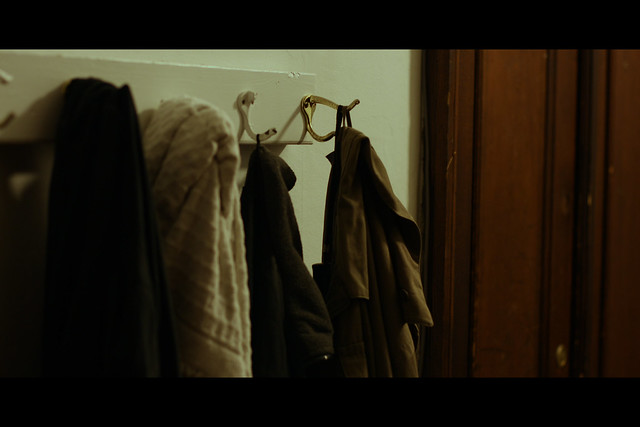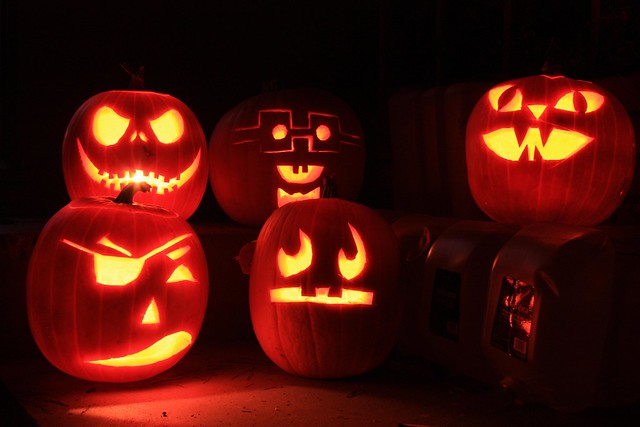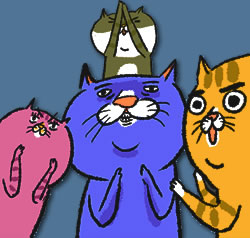The Danish word frakke [ˈfʁɑgə] means coat or overcoat. It was borrowed from the German Frack [fʁak] (tails, tailcoat, dress coat), which came from the English frock, which generally means dress, but can also refer to a peasant’s smock, or a coarse wide-sleeved outer garment worn by members of some religious orders [source].
When the rights and authority are removed from a priest, government official or medical practioner, they are said to be defrocked, unfrocked or disfrocked [source]. Before being defrocked, you would have to be frocked (made into a cleric).
In a frock flick (costume drama), some of the characters might wear frock coats, while others might wear smock frocks, housefrocks or underfrocks or even go frockless, which might lead to them being defrocked [source].
Frock comes from the Middle English frok / frokke (habit, cope, cowl, coat), from Old French froc (frock, a monk’s gown or habit), perhaps from the Medieval Latin hrocus / roccus / rocus (a coat), from the Frankish *hroc / *hrok (skirt, dress, robe), from the Proto-Germanic *hrukkaz (robe, jacket, skirt, tunic), from the Proto-Indo-European *kreḱ- (to weave).
So these words have been weaving their way between the Germanic and Romance language families, and changing their meanings, pronunciations and spellings over time.
Other words from the same roots include:
- Danish: rok [ˈʁʌg] = garment
- Dutch: rok [rɔk] = skirt, petticoat
- French: froc [fʁɔk] = frock (clerical garment), the clerical profession, trousers
- German: Rock [ʁɔk] = skirt
- Swedish: frack [fɹæk] = dress suit, tailcoat
A similar Danish word – jakke [ˈjɑgə] (jacket) – comes from the German Jacke (jacket), from the Old French jaque (a gambison – a type of tight-fitting shirt), which was either named after someone called Jaques (James), or from jaque de mailles (coat of arms) from the Arabic شـَكّ (šakk – breastplate). The English word jacket comes fromt the same root, via the Middle French jacquet.
The Danish word skjort [ˈsɡ̊joɐ̯d̥ə] sounds similar to skirt in English, but means shirt. It comes from the Old Norse skyrta (shirt), from the Proto-Germanic *skurtijǭ (skirt, apron). The English word skirt comes from the same root [source].
The English word shirt also comes from the same root, but via the Middle English sherte / shurte / schirte, from Old English sċyrte (a short garment; skirt; kirtle) [source].
The Danish word skørt [ˈsɡ̊ɶɐ̯d̥] (skirt, kilt) comes from the same root, via the Middle Low German schorte (armour) [source].
Another Danish word for skirt is nederdel (“lower part”).

Sources: Den Danske Ordbog, Wiktionary, Middle English Compendium, bab.la, Reverso










